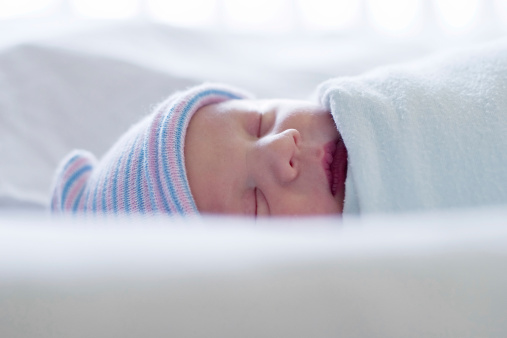
A new study by researchers at Northwestern University finds that new dads should be screened for depression, not just new mothers.
“It’s not just new moms who need to be screened for depression, dads are at risk, too,” says Craig Garfield, MD, lead author of the study and an associate professor in pediatrics and medical social sciences at the Northwestern University Feinberg School of Medicine. “Parental depression has a detrimental effect on kids, especially during those first key years of parent-infant attachment. We need to do a better job of helping young dads transition through that time period.”
The researchers relied on data collected from 10,623 young men enrolled in the National Longitudinal Study of Adolescent Health (Add Health). It includes a nationally representative sample of adolescents in the U.S. and follows them at several intervals over nearly 20 years into young adulthood. All participants’ symptoms of depression were scored at each wave through a survey. During the most recent interval of the study, the young men were 24 to 32, and 33 percent had become fathers.
The majority of these fathers lived in the same home as their children. Young fathers who did not live with their children did not experience such a dramatic increase in depressive symptom scores in early fatherhood. Significantly, non-residential fathers’ depression symptom scores were high before fatherhood and start to decrease during early fatherhood. For fathers who lived with their kids, depression symptom scores were lower before fatherhood and then dramatically increased after the birth of a child and into early fatherhood.
Previous research has shown depressed dads will use more corporal punishment, read less and interact less with their children, and are more likely to be stressed and neglect their children, according to the study authors. Compared to the children of non-depressed dads, these children are at risk for having poor language and reading development and more behavior problems and conduct disorders.
“We knew paternal depression existed and the detrimental effects it has on children, but we did not know where to focus our energy and our attention until this study,” said Dr. Garfield. “This is a wakeup call for anyone who knows a young man who has recently become a new father. Be aware of how he is doing during his transition into fatherhood. If he is feeling extreme anxiety or blues, or not able to enjoy things in life as he previously did, encourage him to get help.”
The study was funded by the Eunice Kennedy Shriver National Institute for Child Health and Development of the National Institutes of Health and published in Pediatrics.





